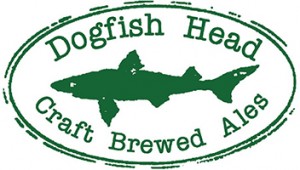
It’s the same idea that Calagione operated under when he started in 1995. Calagione said he knew Dogfish couldn’t compete with the bigger brands in the industry by trotting out typical offerings, so by building a foundation around those three fundamentals he took a different approach by trying to “create niches.”
“Don’t just do what everybody else does. Try to find something really, really unique,” he said.
He said his brewery, in the early days of business, earned good marks for using high-quality ingredients and offering well-differentiated beers, but the middle piece – consistency – lagged behind.
Today, due to “off the charts” beer IQ among consumers, he said not having all three characteristics from launch could debilitate an upstart brewery.
“What I could get away with when I opened Dogfish in the late 90s, you can’t get away with now,” he said. “The consumers expect the highest quality and the highest consistency.”

“The quality of the beer has to be number one,” he said, mirroring Dogfish’s philosophy. “If it isn’t world class, don’t do it until it is.”
Excelling in all three categories, Calagione added, will “give you the legs to stand out in a crowded market.”
“That should help the cream rise to the top.”
The market wasn’t always as crowded, of course. Now, there’s a new brewery opening every day, but Slosberg’s decision to enter the beer industry was a bit different than Calagione’s. At the time, he was influenced, in part, by his desire to work on the ground floor of a new industry. In essence, he wanted to avoid the crowds.
One of Pete’s biggest hurdles at the beginning was figuring out how to build a business with no money. For that, the brewery employed a tier system.
“Let’s not think of the concept of raising all the money at once. For X amount of money, let’s think about what we can deliver,” he said. “So when we need money, investors can see we do what we say we’re going to do.”
Both Calagione and Slosberg emphasized the importance of further differentiation as the market becomes more oversaturated.
There’s value in creating a specific niche, Slosberg said, and “If you want to be all things to all people, you’re Bud, Miller, Coors.”
“You’ve got to be different, stick your neck out a little bit,” he added.
That extends beyond beer, into entrepreneurialism. As Calagione explained, during the making of his brewery’s “Bitches Brew,” an imperial stout honoring Miles Davis’ triumphant 1970 jazz album of the same name, he said he asked the famed trumpeter’s nephew what his uncle’s secret was in creating such unique music.
“He said, ‘Don’t play what’s there. Play what’s not there.’”